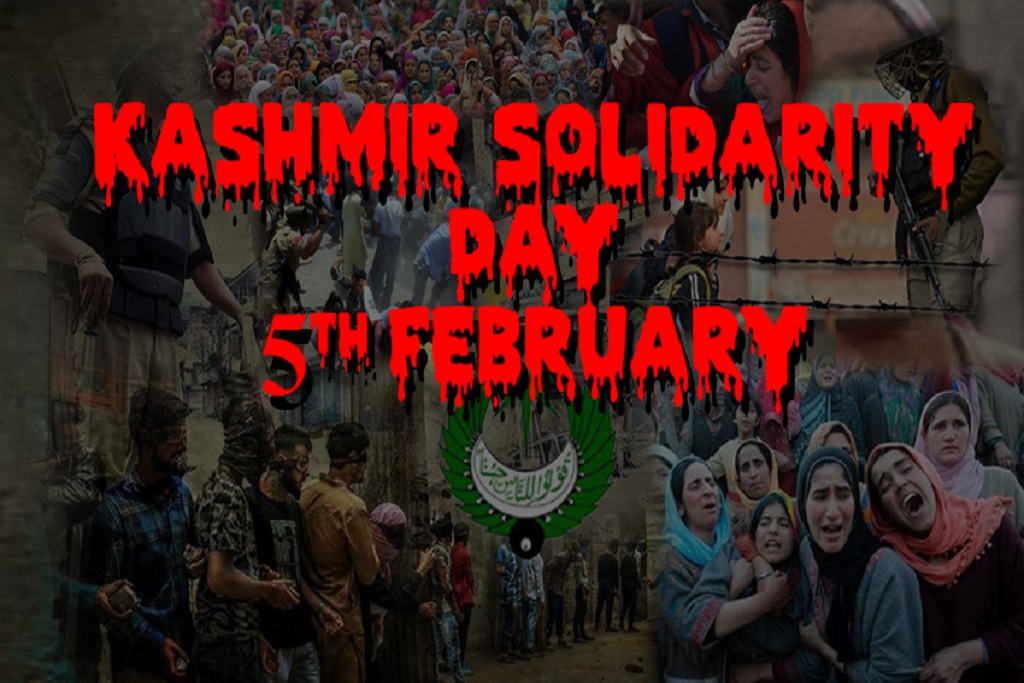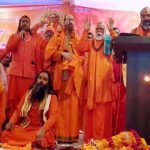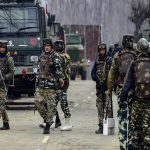FARAAN: Today, the world is observing the ‘International Day of Human Fraternity’ to highlight the importance of tolerance among the members of different religions, cultures and ethnicities. Mr. Antonio Guterres, the Secretary General of the United Nations has called for renewed commitment to forge an “alliance of peace” amid a surge in hate speech, sectarianism, and strife. The Secretary General has further said that “The declaration ‘Human Fraternity for World Peace and Living Together’ – co-authored by His Holiness Pope Francis and His Eminence the Grand Imam of Al-Azhar Sheikh Ahmed El Tayeb – is a model for interfaith harmony and human solidarity. Let us all take inspiration and renew our commitment to stand together as one human family.”
President Joe Biden gave a message of hope to the whole world when he said on the occasion of ‘International Day of Human Fraternity’: “We have the opportunity to build a better world that upholds universal human rights, lifts every human being, and advances peace and security for all.”
It was on December 21, 2020, that the United Nations General Assembly passed a resolution 75/200 and unanimously proclaimed February 4 as ‘the International Day of Human Fraternity.’
Dr. Ghulam Nabi Fai, Chairman, ‘World Forum for Peace & Justice,’ said, “I am so proud to be an American and a Muslim from Kashmir. Because the Valley of Kashmir, where I come from has remained the symbol of communal harmony and tolerance for centuries. Kashmir has been haloed as the land of saints. Its culture celebrates diversity, and it has been the confluence of a rich mixture of philosophies and ways of life that merge without losing their distinct identities.
Dr. Fai asked, can anyone deny the fact – of no small significance – that while the Subcontinent under British rule was the scene of recurrent murderous strife, communal riots were unheard of in Kashmir? That unquestionable fact brings out the real character of Kashmir’s heritage. A person no less important than Mahatma Gandhi, the father of nation of India, has eloquently elucidated those sentiments in August 1947 in these words, “…It is really difficult for me to distinguish between a Hindu Kashmiri and a Muslim Kashmiri. You people speak one language and have one culture. While the rest of the country burns in communal fire, I see a ray of hope in Kashmir only…”
India today, in 2023, needs Mahatma Gandhi more than ever who could take a larger view of matters and frame a constructive course of action, both humane and imaginative. The present Indian leadership of Narendra Modi is wholly absorbed in pretty political concerns. Modi government has particularly failingly tried to equate Kashmiri people with fundamentalism. The term fundamentalism, Dr. Fai clarified, is quite inapplicable to the Kashmiri society. A hallmark of Kashmir has been its long tradition of tolerance, amity, and good will across religious and cultural boundaries. It has a long tradition of moderation and non-violence. Its culture does not generate extremism or fundamentalism.
Fai added that the five religious’ groups of Kashmir – Buddhists, Sikhs, Hindus, Muslims and tiny minority of Christians – have for centuries flourished in harmony and mutual bond: no religious ghettoes; no religious apartheid; no economic or sharp cultural divides. All religious persuasions rejoiced at each other’s holidays and times of joy, attended social gatherings together, lived as neighbors in harmony, and treasured their mutual trust. The various faiths of Kashmir eschew fanatical or extremist dogmas that distort and debauch their doctrinal origins. Tolerance and mutual respect are their watchwords.
Dr. Fai cited two recent shining examples of tolerance, communal harmony, and open-mindedness in Kashmir, although there are hundreds of such instances. India’s leading weekly ‘India Today’ reported on May 14, 2022, that ‘Muslims helped in performing the last rites of a Kashmiri Pandit woman in Kulgam in a great show of solidarity amid heightened tensions in Kashmir.” And ‘Kashmir Life Magazine’ reported on September 2, 2022, that ‘In a classic act of communal harmony and amity, members of Muslim community Friday performed the last rites of an elderly Pandit woman in Pargochi village in south Kashmir’s Shopian district.










